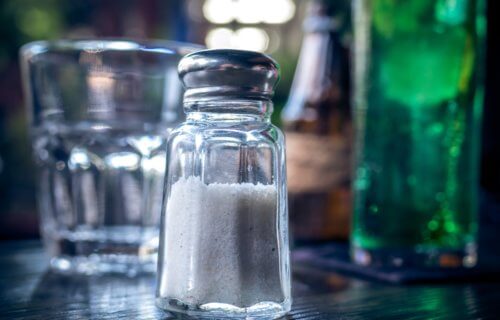BERLIN, Germany — Salt is the quintessential flavor enhancer, but it has a long history of being bad for your health. From hardening arteries to worsening bloating, doctors typically advise patients to limit their use of the salt shaker. Now, a new study is revealing what salt actually does to human cells which can make it unhealthy to consume.
Researchers from the Max Delbrück Center for Molecular Medicine in the Helmholtz Association (MDC) say consuming sodium affects the energy mitochondria (the power plants of cells) produce. Disrupting this energy balance has serious consequences for immune cells, which stop working properly as a result.
In 2015, MDC Professor Dominik Müller led a study which discovered that high salt levels in the blood affect the activation and function of monocytes. These are the precursors to macrophages, which are specialized cells that detect and destroy harmful bacteria in the body.
“But we didn’t know exactly what was happening in the cells,” explains MDC’s Dr. Sabrina Geisberger in a university release.
Salt consumption dampens the building blocks of the energy-making process
In the new study, Geisberger and an international team examined the metabolism of immune cells exposed to high levels of salt. The results reveal changes begin in as little as three hours.
“It disrupts the respiratory chain, causing the cells to produce less ATP and consume less oxygen,” says the study leader.
So what exactly does that mean for your health? ATP (adenosine triphosphate) is the “universal fuel” which powers up the body’s cells. It provides the energy people need to perform “chemical work,” like creating proteins and other healthy molecules. This work gives humans the biological tools the body requires to power the muscles and maintain metabolism.
The mitochondria (the cell’s batteries) produce ATP through a biochemical process called the respiratory chain.
“Salt very specifically inhibits complex II in the respiratory chain,” Geisberger adds.
When this happens, lower energy levels cause monocytes to mature differently than normal.
“The phagocytes, whose task is to identify and eliminate pathogens in the body, were able to fight off infections more effectively. But this could also promote inflammation, which might increase cardiovascular risk,” Müller explains.
One slice of pizza won’t hurt much, but don’t overdo it
Researchers also demonstrated how more salt affects the phagocytes of live patients the same way. The team studied of group of healthy men who added six grams of salt to their diets (in tablet form) for 14 days. In another experiment, study authors also analyzed the monocytes in the blood of eaters consuming pizza from an Italian restaurant.
Results show the dampening effect on mitochondria doesn’t just come from long-term salt usage, a single slice of pizza alters the cells! Researchers took blood from the participants three and eight hours after their meal. While the tests show increased salt intake has an effect after three hours, the impact was barely noticeable after eight hours.
“That’s a good thing. If it had been a prolonged disturbance, we’d be worried about the cells not getting enough energy for a long time,” Müller notes.
Therefore, study authors say the impact of a salty snack won’t result in permanent cell changes. However, they add people should literally take that news with a grain a salt and not continuously eat foods high in sodium. Their results could not rule out the possibility that long-term salt intake could lead to long-lasting mitochondrial impairment.
For reference, the pizza in the study contained 10 grams of salt. Nutritional experts recommend adults keep their salt intake to five or six grams daily.
The big impact of small ions
Study authors note that their study also shows how size is not a factor when it comes to major impacts on human health. Sodium ions are some of the smallest molecules in nature.
“When these ions flood into the mitochondria – and they do this under a variety of physiological conditions – they regulate the central part of the electron transport chain,” says Dr. Stefan Kempa from the Berlin Institute for Medical Systems Biology.
The team will now investigate if salt influences energy production in other types of cells. Professor Markus Kleinewietfeld of Hasselt University says it’s extremely likely researchers will discover the same effect because mitochondria exist in every human cell except for red blood cells.
Although there are still some questions about how all the cells handle the flow of sodium into the mitochondria, researchers believe their findings reaffirm how bad salt can be on human health.
“Of course the first thing you think of is the cardiovascular risk. But multiple studies have shown that salt can affect immune cells in a variety of ways. If such an important cellular mechanism is disrupted for a long period, it could have a negative impact – and could potentially drive inflammatory diseases of the blood vessels or joints, or autoimmune diseases,” Kleinewietfeld concludes.
The study appears in the journal Circulation.
